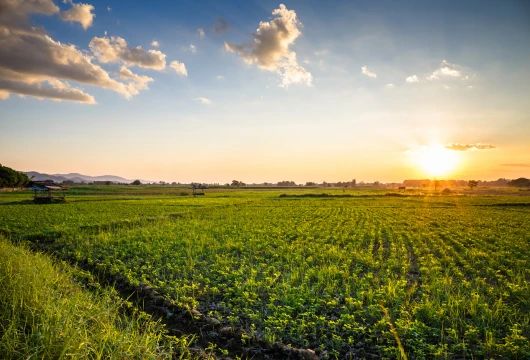DAHD Highlights Sustainability in Water Conservation for Livestock Sector
As India grapples with the challenges of sustainable water management, the Department of Animal Husbandry and Dairying (DAHD) has taken a proactive approach to water conservation in the livestock sector. This year, during India Water Week 2024 celebrations, DAHD organized a comprehensive exhibition at Pragati Maidan, New Delhi. The event was designed to showcase the department’s efforts toward the sustainable management of water resources, particularly in the context of livestock farming.
Water conservation in the livestock industry is crucial, given the sector’s heavy reliance on water for feeding, sanitation, and overall animal well-being. The DAHD exhibition highlighted the importance of minimizing the water footprint in livestock production while promoting sustainable practices nationwide.
Showcasing Sustainable Water Conservation in the Livestock Industry
India Water Week, organized by the Ministry of Jal Shakti, is a global platform focusing on inclusive water management practices. This year’s theme, “Partnerships and Cooperation for Inclusive Water Development and Management,” brought together many stakeholders, including decision-makers, politicians, researchers, planners, and innovators. With participation from around the globe, the event aimed to raise awareness about sustainable water management across various sectors, including agriculture and livestock.
DAHD’s exhibition at the event emphasized how critical water conservation has become for ensuring the future of the livestock sector, which directly contributes to the country’s food security and rural economy. The department highlighted its flagship schemes that focus on developing water resources while maintaining the sustainability and health of livestock production systems.
The Importance of Water Footprint in Livestock Production
The concept of the “water footprint” was central to the exhibition. Water footprint refers to the total freshwater used to produce goods and services. In the context of livestock, this involves the water consumed by animals and the water used for growing feed crops, maintaining hygiene, and processing livestock products.
With its diverse climatic regions and significant agricultural sector, India faces considerable challenges in managing water resources efficiently. The exhibition stressed that optimizing livestock’s water footprint can significantly reduce pressure on water supplies and improve the sustainability of the entire food production system.
Through initiatives like improved water management in animal husbandry, DAHD is helping farmers and livestock owners make the best use of available water resources, especially in water-scarce regions. These initiatives have a direct impact on improving productivity and ensuring the well-being of animals while also helping to reduce the environmental impact of livestock farming.
Flagship Schemes for Water Conservation in Livestock
The exhibition also showcased several flagship programs implemented by DAHD that aim to sustainably develop water resources in the livestock sector. One key initiative is promoting water-efficient technologies in animal husbandry practices. This includes the development of water recycling systems, rainwater harvesting infrastructure, and better irrigation techniques for feed crop cultivation.
Additionally, the department has been developing training programs for farmers and livestock owners, focusing on sustainable water usage and sanitation practices. These programs are part of a broader effort to build capacity within the rural livestock community and ensure that water conservation becomes a central component of livestock management.
Another critical aspect of DAHD’s water conservation strategy is the emphasis on community-based water management systems. By encouraging local communities to take ownership of their water resources, DAHD fosters a sense of responsibility and collaboration, which is crucial for long-term sustainability.
Sustainable Development and Economic Growth
The sustainable development of water resources in the livestock sector has environmental and economic benefits. Efficient water management can lead to lower costs for livestock owners, increased productivity, and better-quality animal products. This, in turn, contributes to the overall economic growth of the rural economy, where livestock farming plays a significant role.
Moreover, the department’s water conservation initiatives align with the government’s goals of achieving sustainable development and addressing climate change. Water scarcity is expected to become an increasingly pressing issue in the coming years, and DAHD’s proactive approach to managing water resources in livestock farming is a step in the right direction toward building a more resilient agricultural sector.
Partnerships for a Sustainable Future
One of the critical messages of India Water Week 2024 was the importance of partnerships in achieving sustainable water development. DAHD has been working closely with other ministries, research organizations, and international agencies to promote innovative technologies in water management.
For example, DAHD is collaborating with various scientific bodies to explore using AI and machine learning to optimize water usage in livestock farming. By integrating these advanced technologies into traditional farming practices, the department is helping to modernize the sector while ensuring that water resources are used efficiently and sustainably.
Looking Ahead: A Sustainable Livestock Sector
As India grows and develops, the need for sustainable water management will only become more critical. The livestock sector, which provides livelihoods for millions of people and plays a crucial role in food security, must be at the forefront of these efforts.
DAHD’s work promoting water conservation and sustainable management of water resources is helping to protect the environment and ensuring that the livestock sector remains viable and productive in the years to come. By focusing on reducing livestock production’s water footprint, DAHD is setting the stage for a more sustainable, water-efficient future.
Water Conservation as a Pillar of Sustainability
The exhibition organized by DAHD at India Water Week 2024 highlighted the importance of sustainability in the livestock sector. Water conservation is no longer an option but a necessity for ensuring the industry’s long-term viability. Through flagship schemes and innovative approaches, DAHD leads the charge toward a more sustainable livestock sector, where water is used efficiently and resources are managed responsibly.
India’s efforts in water conservation, especially in the context of animal husbandry, showcase how sustainability can be achieved through collaboration, innovation, and community involvement. The future of livestock farming depends on these initiatives, and DAHD ensures that the sector is well-equipped to meet the challenges of tomorrow.
For more in-depth analysis and inspiring climate news, click here.

